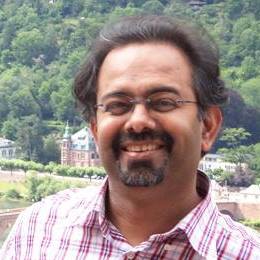«Prev From Jan 26, '26 to Feb 25, '26 Next»

3356
Questioning Normal Daily Life?
Sat Aug 13, 11:30 AM
Prof Divyaraj Amiya & Lamakaan Programming Team
Lamakaan invites one and all to a refreshing talk on 'Questioning Normal Daily Life: Normal? Daily? Life?' by Prof Divyaraj
What is time poverty in the context of urban Indian middle class of Delhi in 21st century ? In the 1950s, one male member with an 8-to-10-hours day job was somehow able to provide for a family of four or five children and extended family members. In 2013, both spouses work 12 hours, which equals a combined 22 to 24 hours each day. Add to that the share contributed by ageing but ‘economically active’ parents i.e. 3-4 working hours, wherever possible. In total, the shrunken domestic units spend 26 to 34 hours working every day at the workplace. They have to work three to four times more at the workplace. Additionally, compared to 1950s or 60s they are far more productive at the workplace. Still, the dominant ideology never tires of telling them how much more hard-working, focussed and motivated they should be.
Basing itself on recent anthropological resarches and classical works of political economy on the notion of time and work, talk and the first version of the film Delhi : After 20 Years will try to raise some fundamental questions about what is accepted as normal daily life in Delhi. The broad consensus around production of well-educated urban middle class as solution to the ills of social and economic crises will be questioned in the documentary report.
Divyaraj Amiya obtained his undergraduate degree in political science, geography and history from Patna and Delhi University, India. Later, he obtained his M. Phil degree in German literature from Jawaharlal Nehru University, New Delhi, India. Currently, Divyaraj is a lecturer of Modern South Asian Studies and Hindi in the Department of Indology and Comparative Religion (Asia-Orient-Institute) of University of Tübingen, Germany. His areas of research interest is the emergence of modern social identities during the era of colonial modernity in India. After the opening of Indian economy in the 90s there has been a boom in “new” urban Indian middle classes from different sectors of Indian population. Divyaraj by his research shows the applicability of new concepts like changing time-use pattern in the daily lives of urban middle class of India. The concepts like time poverty and time prosperity to explain the challenges and crisis faced by the “new” middle class of India, will be the topic of his presentation and discussion. Divyaraj will begin his presentation with a video report, Delhi: After Twenty Years (25 Minutes), based on close interviews of the members of the middle class from different professions, walks of life, generations and a tentative projection about their “normal daily life” in the coming decades.
Divyaraj Amiya is lecturer for Modern South Asian Studies and Hindi in the Department of Indology and Comparative Religion (Asia-Orient-Institute) of University of Tübingen, Germany.
- All are welcome!
What is time poverty in the context of urban Indian middle class of Delhi in 21st century ? In the 1950s, one male member with an 8-to-10-hours day job was somehow able to provide for a family of four or five children and extended family members. In 2013, both spouses work 12 hours, which equals a combined 22 to 24 hours each day. Add to that the share contributed by ageing but ‘economically active’ parents i.e. 3-4 working hours, wherever possible. In total, the shrunken domestic units spend 26 to 34 hours working every day at the workplace. They have to work three to four times more at the workplace. Additionally, compared to 1950s or 60s they are far more productive at the workplace. Still, the dominant ideology never tires of telling them how much more hard-working, focussed and motivated they should be.
Basing itself on recent anthropological resarches and classical works of political economy on the notion of time and work, talk and the first version of the film Delhi : After 20 Years will try to raise some fundamental questions about what is accepted as normal daily life in Delhi. The broad consensus around production of well-educated urban middle class as solution to the ills of social and economic crises will be questioned in the documentary report.
Divyaraj Amiya obtained his undergraduate degree in political science, geography and history from Patna and Delhi University, India. Later, he obtained his M. Phil degree in German literature from Jawaharlal Nehru University, New Delhi, India. Currently, Divyaraj is a lecturer of Modern South Asian Studies and Hindi in the Department of Indology and Comparative Religion (Asia-Orient-Institute) of University of Tübingen, Germany. His areas of research interest is the emergence of modern social identities during the era of colonial modernity in India. After the opening of Indian economy in the 90s there has been a boom in “new” urban Indian middle classes from different sectors of Indian population. Divyaraj by his research shows the applicability of new concepts like changing time-use pattern in the daily lives of urban middle class of India. The concepts like time poverty and time prosperity to explain the challenges and crisis faced by the “new” middle class of India, will be the topic of his presentation and discussion. Divyaraj will begin his presentation with a video report, Delhi: After Twenty Years (25 Minutes), based on close interviews of the members of the middle class from different professions, walks of life, generations and a tentative projection about their “normal daily life” in the coming decades.
Divyaraj Amiya is lecturer for Modern South Asian Studies and Hindi in the Department of Indology and Comparative Religion (Asia-Orient-Institute) of University of Tübingen, Germany.
- All are welcome!

